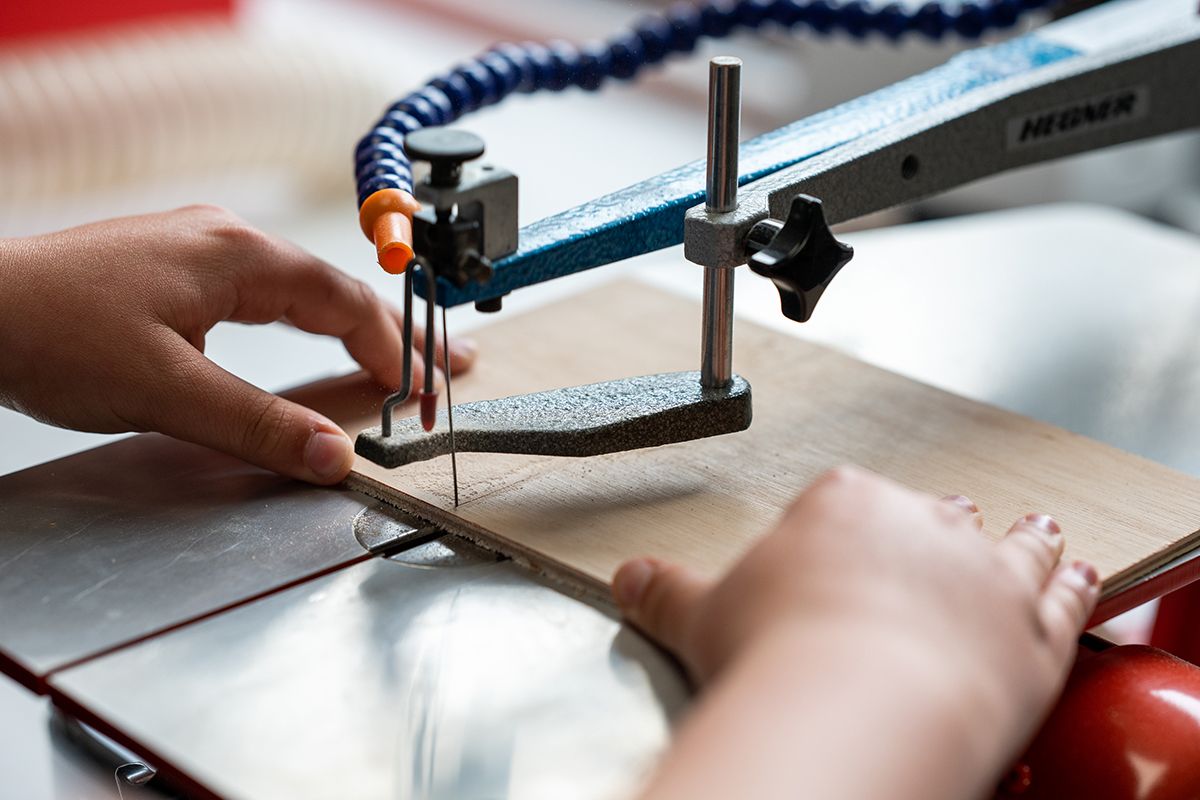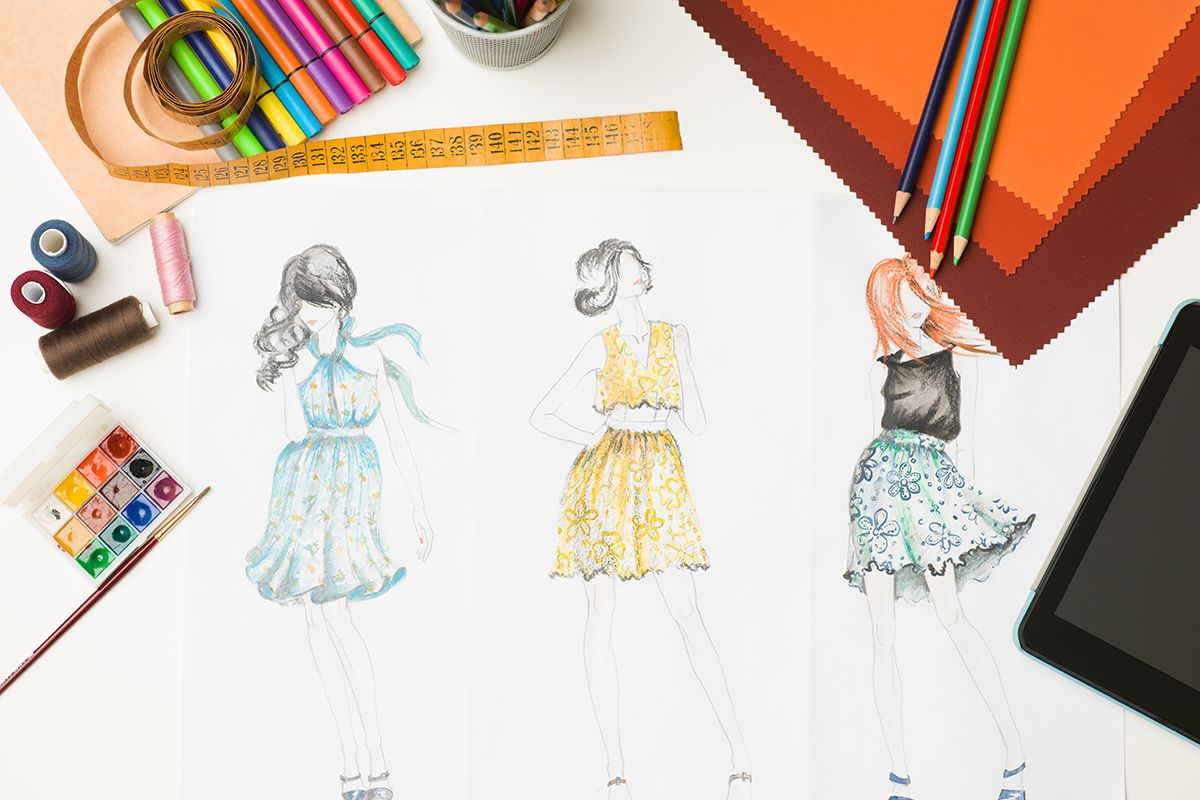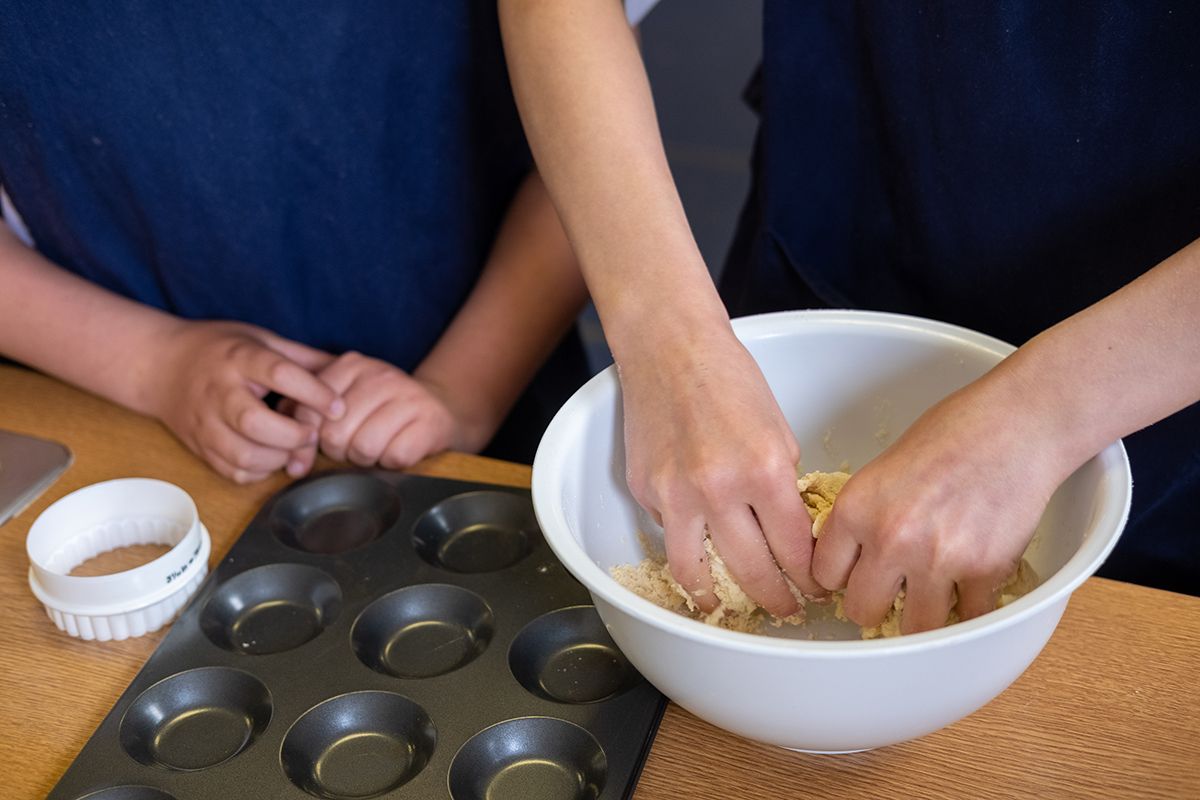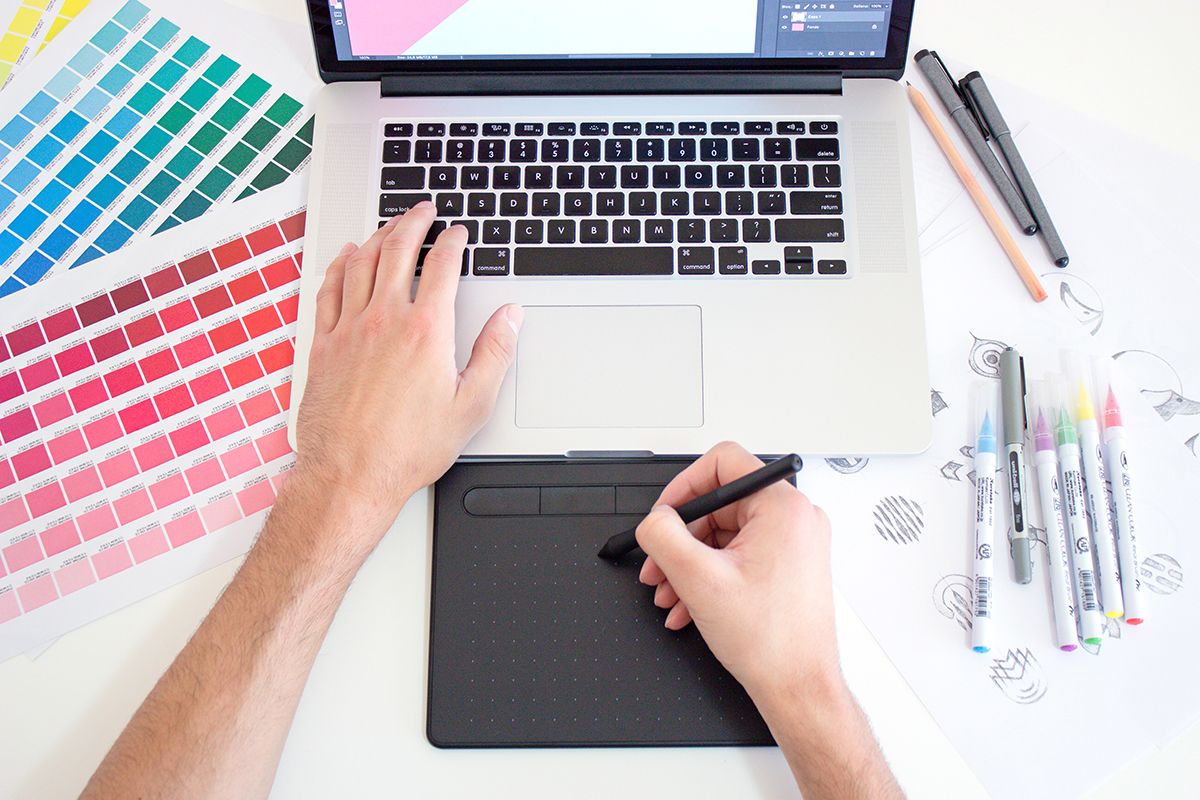Technology
Technology
Curriculum Overview
The focus of our Technology curriculum is to inspire our students, while creating well rounded, thoughtful, inquisitive and resilient designers and leaders of the future. The curriculum allows students to master life skills, while being introduced to modern technologies.
Technology allows students to experience a breadth of design across a range of materials. Students are able to use research to inform and inspire their designs. The iterative design process allows students to refine their designs developing their resilience and problem solving skills.
What do we expect students to get from Technology?
- Students will understand the design process for a range of contexts and material types.
- Students will be responsible designers taking into consideration environmental and sustainability issues.
- Students will be reflective of their designs and work of others, while being able to articulate further developments.
- Students will develop life skills and be able to transfer their learning into other subjects such as Maths and Science.
Child Development:
AMBITION: We encourage children to do remarkable things, to aim high and engage with the world around them
SUCCESS: We are the key to a child’s success, unlocking potential and supporting their early development.
PROGRESS: We encourage children to thrive, we support their journey progressing towards independence.
INSPIRATION: We inspire children to be thoughtful, ask questions, make mistakes and learn from those around them.
RESPECT: We role model, promote and demonstrate how to respect and value our diverse society.
EQUALITY: We understand that each child is an individual and deserves fairness, inclusion and safety.
Design Technology:
AMBITION: To explore and achieve in the world of design and manufacturing.
SUCCESS: To create high quality products, develop skills and work towards a vocational or academic career.
PROGRESS: To broaden wider skills such as resilience, independence and teamwork.
INSPIRATION: To develop a love for the subject and creativity.
RESPECT: Communicating and working collaboratively to help one another and quality assure.
EQUALITY: Meeting the needs of clients from all backgrounds and the developing world.
Fashion:
AMBITION: Aiming to achieve excellent grades.
SUCCESS: Progressing to university courses that are leaders in Fashion and textiles.
PROGRESS: Working on the things that we have found difficult in the past until we have improved.
INSPIRATION: Setting an example to other students with hard work and dedication.
RESPECT: Being punctual for classes and understanding that everyone’s contribution is important.
EQUALITY: Opportunities and kindness for everyone.
Food:
AMBITION: To aim high, to excel and to explore the culinary world.
SUCCESS: To continually develop high level outcomes while linking to theoretical practices.
PROGRESS: To show resilience while developing and progressing practical skills and knowledge.
INSPIRATION: To be innovative in developing high quality dishes, taking ideas from a range of sources such as chef, cultures and countries.
RESPECT: To regard yourself, your peers and your working area and equipment with pride and high esteem.
EQUALITY: To work together to ensure we all have the same opportunities for success, supporting the removal of barriers for all.
Health & Social Care:
AMBITION: We are ambitious for ourselves and our futures – We always aim for subject aspirational targets which are higher than educational targets.
SUCCESS: Celebrate success – awarding achievement points for exceptional effort and commitment. Building on previous success of Year 10 and using this as an inspiration and confidence builder for Year 11.
PROGRESS: Good/ outstanding progress – writing frames developed to structure coursework to enable success at all levels, formative feedback provided regularly to improve levels of achievement.
INSPIRATION: Inspire each other to do our best – peer support and collaborative tasks used within lessons to draw on strengths and encourage others to develop a deeper knowledge.
RESPECT: Polite, tolerant, kind to everyone – Class rules developed incorporating what is and isn’t acceptable. Core care values studied and modelled in lessons and course work role play.
EQUALITY: Equal opportunities for all by recognising the value of diversity and upholding everyone’s rights to accessing the curriculum in a variety of formats. Inclusive curriculum to challenge all learners and resources produced for all levels.
How does learning develop over the five years?
Year 7:
Throughout KS3 students carry out a carousel covering Wood, Graphics, Food and Fashion. The overarching theme of the curriculum is to create practical outcomes using the design process to create high quality outcomes. Year 7 will see the foundations of each subject embedded. Specifically looking at research, brief, analysis, design, make and evaluation. Practical skills in yr7 outline the fundamentals and built on every year throughout the curriculum to develop their previous skills.
Wood- Students make a wooden lap jointed box learning; Measuring, cutting, hand tools, electrical tools, joints, drilling, finishing techniques and isometric drawing.
Food- Students learn about healthy eating and balanced diets covering; knife skills, heat transfer, basic nutrients, sensory analysis and evaluation.
Fashion- Students create a printed tote bag while developing; Pattern research, design and development, printmaking, hand sewing, applique, embellishment.
Graphics- Students create a stationary transition pack which incorporates; Literacy focused, typography, design development, rendering, vacuum packaging.
Year 8:
Year 8 sees the development of the foundation skills learnt in Year 7 with development of the skill levels needed and development of new, higher level skills being embedded. Students will create practical outcomes from each area within the carousel.
Wood- Students create an automata wooden toy learning and embedding; measuring, cutting, joints, drilling, mechanisms, introduction to CAD/CAM, design realisation and evaluation.
Food- Students have a core focus on cultural eating which covers; development of the practical knife skills, nutritional content, dietary diseases, factors affecting food choice and developing their nutritional understanding of core ingredients.
Fashion- Students work on sustainability of fashion items covering; hand sewing, African design inspiration, design development and a weaving outcome.
Graphics- Students work to create a book sleeve; the story is read to them developing their imaginative responses while understanding layout, typography, illustration and support literacy.
Year 9:
Year 9 continues to develop the skills developed in years 7 and 8, while creating additional opportunities to increase students readiness to embark on KS4 courses with independence and creativity.
Wood- Students create a well developed money box outcome with a clear context, brief and client while also covering; wood joints, designs, research, client needs and pattern cutting.
Food- Students have a focus on food science and food provenance looking at; hypothesis, investigations, functions of ingredients, food miles and farming techniques.
Fashion- Students work on creating wearable art in the form of a screen printed T-shirt using an array of skills; research into specific artists, design inspiration, specification creation, pattern cutting, printing, evaluation against a specification.
Graphics- Students created themed packaged outcomes looking at; design styles, net packaging and effective use of pattern and colour.
Year 10/11:
Our KS3 curriculum has been designed to create spiral learning for those students who opt for Food Preparation and Nutrition, Design Technology and Fashion at KS4, students therefore have strong foundations when starting their KS4 studies. The GCSE specifications have been chosen looking at the needs of our students, which allows the continuation of high quality practical outcomes throughout the course. This allows success to be celebrated throughout their KS4 courses. Our curriculum in Technology at KS4 also contains Child Development and Health and Social Care, therefore we base our teaching, where possible, on real life contexts to create developed discussion and learning experiences.
How is the timetabled curriculum supplemented or enriched by other approaches to learning?
Cross curricular activities such as STEM allow Technology to highlight further links across the curriculum. Additional sessions after school in the workshops, kitchens or CAD/CAM areas allow students to further develop and refine their skills and in turn their practical outcomes.
In what ways does our curriculum help to develop students?
- Cultural Diversity- Food provenance and cultural eating is taught across the key stages. Focus on materials and their origins are taught during the design process. The designers which we refer to for inspiration during our projects show a range of different cultures, backgrounds and identities.
- Positive physical and mental health- Healthy eating, nutrition and energy balance spans the whole Food curriculum. Solution focused designs within real life contexts helps students to understand a range of situations which they may come across. The iterative design process creates a culture of resilience.
- Community Participation- Links with a range of settings to support our teaching of real life contexts and clients.
- Careers and enterprise- We support the practical outcomes of the young enterprise competitions, we look for additional opportunities for our students to be competitive within the local community, with many great outcomes seen.
- Technology and the media- CAD/CAM allows students to be immersed in modern technologies. Students are taught how to effectively research, analyse and find inspiration from the internet using reputable sources.
- Creativity and critical thinking- These terms underpin the entire curriculum with creativity being the golden thread throughout the key stages. Critical thinking is developed through analysis and iterative design.
What forms do assessments take? What is the purpose of assessment?
The purpose of assessment is to track the students progress, allowing for further developed feedback and planning to increase attainment. Assessment also allows data to be collected and communicated around the students educational journey.
Formative assessment:
- Peer Assessment
- Self Assessment
- Retrieval Practice
Summative assessment:
- Exam style Questions
- Baseline testing
- Trial exam papers
- Trial NEA contexts
- NEA outcomes
How do we know if we have a successful curriculum?
- Assessment data will provide improving trends after each data collection.
- Engagement and attitude to learning throughout Technology is high.
- Student voice will provide evidence of what is working well and areas for improvement.
- Regular curriculum reviews with the wider team to ensure the outcomes continue to be successful.
- Increased end of KS4 results.
How do we support ‘High Attaining’ pupils?
- Differentiation through outcomes- allowing further development of the task to showcase and perfect a wider range of skills.
- Teaching to the top and providing scaffolding and structure below.
- Non-Examination Assessment work to be delivered using the top exemplar materials and increasing the independence and understanding of mark schemes to aid the personal development of the project.
- Remove or minimise barriers to practical outcomes such as funding.
- Personalised, detailed feedback specifically looking at how to structure higher grade answers.





